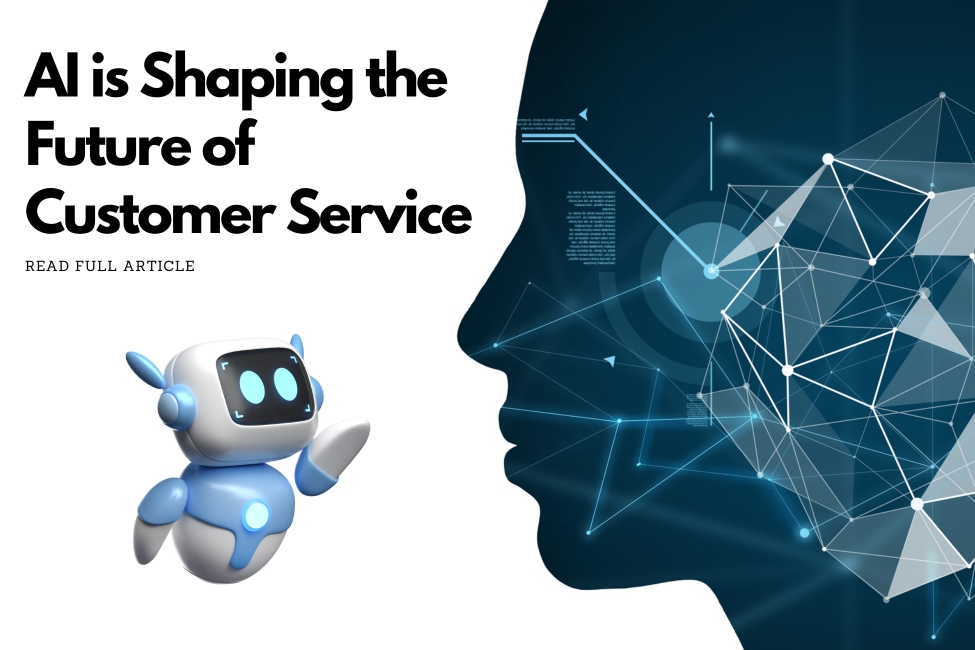Chatbot Trends: How AI is Shaping the Future of Customer Service

Chatbot Trends: How AI is Shaping the Future of Customer Service
Chatbot Trends: How AI is Shaping the Future of Customer Service – Chatbots have transformed from simple automated response systems to sophisticated AI-driven tools that enhance customer service. With the rapid advancements in artificial intelligence (AI), chatbots are becoming more integral to businesses worldwide. This blog explores the latest chatbot trends and how AI is shaping the future of customer service. – Chatbot Trends: How AI is Shaping the Future of Customer Service
Introduction to Chatbots and AI
Chatbots have revolutionized customer service by providing instant, 24/7 support. Powered by AI, these bots can understand and respond to customer queries with increasing accuracy and relevance. With AI, chatbots can handle complex interactions, provide personalized responses, and even predict customer needs.
The Evolution of Chatbots
From rule-based systems to advanced AI-driven bots, chatbots have come a long way. Early chatbots relied on pre-defined scripts, but modern versions leverage machine learning and natural language processing (NLP) to provide more human-like interactions. This evolution has made chatbots more efficient, capable of understanding context and delivering more relevant responses.
Natural Language Processing (NLP) and Its Role
NLP enables chatbots to understand and process human language. By analyzing text or speech, chatbots can comprehend context, sentiment, and intent, leading to more accurate and helpful responses. NLP allows chatbots to handle a wide range of queries, from simple FAQs to complex problem-solving scenarios.
Personalization in Customer Service
AI-powered chatbots can deliver personalized experiences by learning from past interactions and customer data. This personalization helps in creating more engaging and satisfying customer experiences. For instance, chatbots can recommend products based on a customer’s previous purchases or tailor responses based on their preferences and behavior.
Integration with CRM Systems
Integrating chatbots with Customer Relationship Management (CRM) systems allows for seamless access to customer data. This integration ensures that chatbots can provide more informed and efficient support. By having access to a customer’s history and preferences, chatbots can offer tailored solutions and improve overall customer satisfaction.
Multilingual Capabilities
Global businesses benefit from chatbots’ ability to communicate in multiple languages. AI enables chatbots to understand and respond in various languages, breaking down communication barriers and enhancing customer satisfaction. This capability is crucial for businesses that operate in diverse markets and need to provide support to customers in their native language.
The Role of Machine Learning
Machine learning algorithms help chatbots improve over time. By learning from interactions, chatbots can adapt to new queries, improve their responses, and provide more accurate solutions. Machine learning allows chatbots to handle a wider range of topics and provide more nuanced responses, improving the overall user experience.
Voice-Activated Chatbots
Voice-activated chatbots are becoming increasingly popular with the rise of smart speakers and virtual assistants. These chatbots offer hands-free convenience and are ideal for multitasking environments. Voice-activated chatbots can handle various tasks, from answering questions to controlling smart home devices, providing a seamless and intuitive user experience.
Enhancing Security and Privacy
AI-driven chatbots can enhance security by recognizing suspicious patterns and fraudulent activities. They can also ensure that customer data is handled securely, complying with privacy regulations. By incorporating advanced security measures, chatbots can protect sensitive information and build trust with customers.
Future Trends in Chatbot Technology
The future of chatbots looks promising, with advancements in AI continuing to drive innovation. Trends like emotional intelligence, proactive support, and hyper-personalization are set to further transform customer service. Emotional intelligence will allow chatbots to understand and respond to customers’ emotions, while proactive support will enable them to anticipate needs and provide assistance before a problem arises.
Conclusion – Chatbot Trends: How AI is Shaping the Future of Customer Service
AI-driven chatbots are revolutionizing customer service by providing more accurate, efficient, and personalized support. As technology continues to advance, chatbots will become even more integral to customer service strategies, offering businesses a competitive edge in the digital age. By staying informed about the latest trends and leveraging these technologies, companies can enhance their customer engagement and satisfaction.
FAQ – Chatbot Trends: How AI is Shaping the Future of Customer Service
1. What are chatbots?
Chatbots are AI-driven tools that provide automated customer support, handling queries through text or voice interactions.
2. How has AI improved chatbots?
AI has enhanced chatbots by enabling them to understand natural language, personalize responses, and learn from past interactions to improve over time.
3. What is NLP?
Natural Language Processing (NLP) is a branch of AI that helps chatbots understand and process human language, enabling more accurate and relevant responses.
4. Why is personalization important in customer service?
Personalization improves customer satisfaction by tailoring interactions to individual preferences and needs, creating a more engaging experience.
5. How do chatbots integrate with CRM systems?
Integrating chatbots with CRM systems allows them to access customer data, providing more informed and efficient support.
6. Can chatbots handle multiple languages?
Yes, AI-powered chatbots can communicate in multiple languages, making them ideal for global businesses.
7. What is the role of machine learning in chatbots?
Machine learning enables chatbots to learn from interactions, improving their responses and adapting to new queries over time.
8. Are voice-activated chatbots popular?
Yes, voice-activated chatbots are gaining popularity due to their convenience and are widely used in smart speakers and virtual assistants.
9. How do chatbots enhance security?
Chatbots enhance security by recognizing suspicious patterns and ensuring customer data is handled securely, complying with privacy regulations.
10. What future trends can we expect in chatbot technology?
Future trends include emotional intelligence, proactive support, and hyper-personalization, which will further transform customer service.
Recommended Posts

Payment Gateways: Why Localization Matters
June 20, 2024

How to Add FAQ Blocks in Your Wix Website
June 18, 2024


